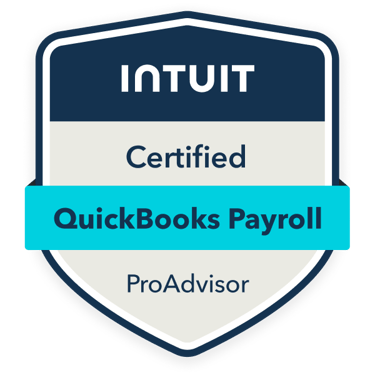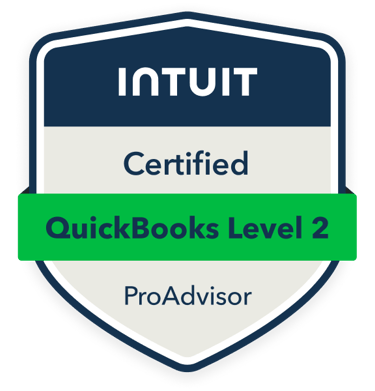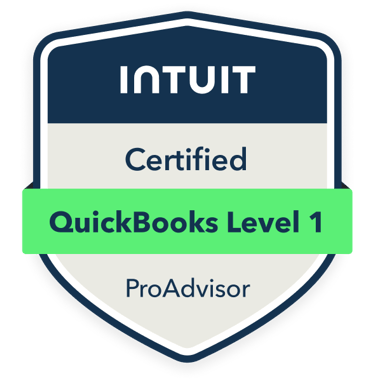The Power of ALL Account Reconciliation
6/18/20253 min read


Beyond the Bank Statement: The Overlooked Secret to True Financial Insight
We all know the drill, right? At the end of the month, you log into your online banking, pull up your statement, and dutifully check it against your records. Is the balance correct? Are there any weird charges? Good. Done.
But what if I told you that this basic bank reconciliation, while essential, is just scratching the surface of what effective bookkeeping can do for your financial well-being?
Here's a crucial, yet often overlooked, bookkeeping tip that can unlock a whole new level of financial clarity: Regularly reconcile all your accounts, not just your bank accounts, and don't just look for errors – use it as an opportunity for financial review.
Why Stop at the Bank Account?
Think about it: Your financial life isn't confined to just your checking and savings accounts. You have credit cards, loans (mortgage, car, personal), investment portfolios, and perhaps even petty cash or accounts receivable if you run a business. Each of these represents a critical piece of your overall financial puzzle.
By limiting your reconciliation efforts, you're essentially looking at a blurry, incomplete picture of your financial health.
The Power of Full-Spectrum Reconciliation
Expanding your reconciliation habit to all your accounts offers a wealth of benefits that go far beyond simply catching mathematical errors:
Proactive Fraud Detection, Everywhere: While bank accounts are common targets, credit card fraud is rampant. Regularly reconciling your credit card statements allows you to spot suspicious activity immediately, often before your bank even flags it, saving you headaches and potential financial losses. The same goes for any unexpected activity on loan or investment accounts.
Unveiling Your True Cash Flow: When you only reconcile your bank accounts, you see where your immediate cash is flowing. But what about your liabilities? Reconciling loan accounts ensures your principal balances are correct, giving you an accurate view of your debt obligations and how quickly you're paying them down. Understanding your true liabilities is as important as knowing your assets.
Optimizing Your Investments: For your investment accounts, reconciliation isn't just about matching numbers; it's about verifying all dividends, interest payments, capital gains, trades, and fees are correctly recorded. This ensures your performance metrics are accurate and helps you understand the true cost of managing your portfolio.
Boosting Business Efficiency (Even for Side Hustles): If you have a business, no matter how small, regularly reviewing your Accounts Receivable (who owes you money) and Accounts Payable (who you owe) aging reports is a form of internal reconciliation. It keeps your cash flow robust by prompting you to follow up on overdue invoices and helps you manage your outgoing payments strategically.
Strategic Financial Review: This is where the magic truly happens. When you reconcile each account, you're not just checking numbers; you're reviewing transactions. Why did I spend that much on dining out this month? Is this subscription still necessary? Am I maximizing my loan payments? This proactive review empowers you to:
Identify spending patterns: Pinpoint areas where you might be overspending or where adjustments could be made.
Uncover missed opportunities: Perhaps you forgot to categorize a deductible expense.
Make informed decisions: With a clear, up-to-date picture of all your assets and liabilities, you can make smarter choices about saving, investing, debt reduction, and future planning.
Stress-Free Tax Season: Imagine approaching tax time with all your financial records already reconciled, categorized, and verified across every single account. No more frantic scrambling, missing documents, or last-minute surprises. Your tax preparer (or you, if you do it yourself) will thank you!
Make It a Habit
This might sound like a lot, but by making it a regular habit – perhaps dedicating a specific time each week or month – it becomes a streamlined process. Most modern financial software and apps make it easier than ever to connect and track all your accounts in one place.
So, next time you sit down to "do your books," challenge yourself to go beyond the bank statement. Embrace the power of full-spectrum reconciliation. It's not just about correcting errors; it's about gaining unparalleled insight and taking proactive control of your financial destiny. Your future self (and your wallet!) will thank you.





